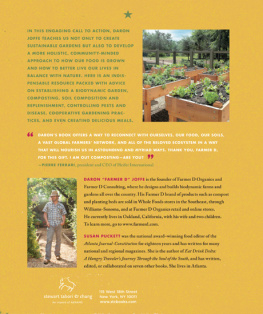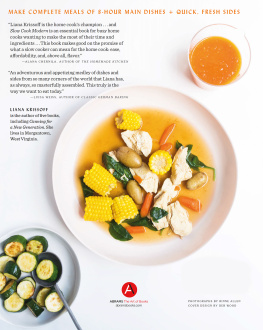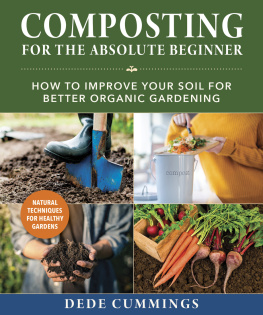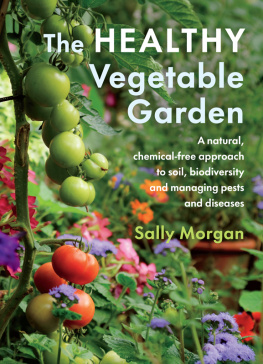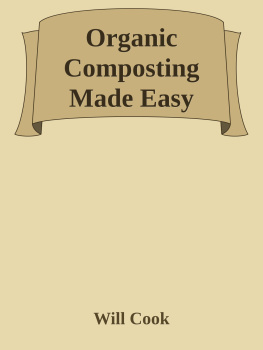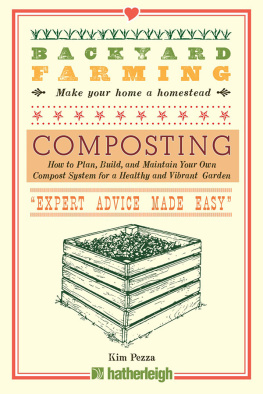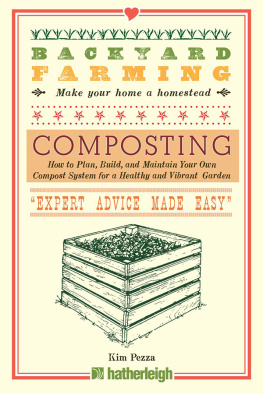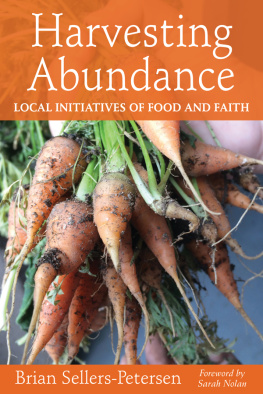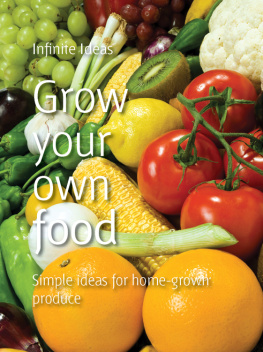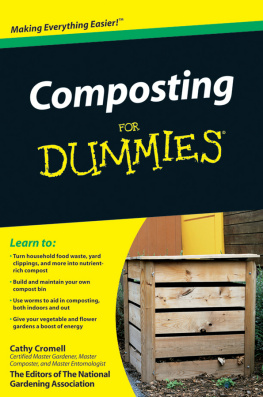

The medical information contained in this book is not intended as a substitute for the medical advice of physicians. The publisher and author accept no responsibility for any liability, loss, or risk, personal or otherwise, which is incurred as a consequence, directly or indirectly from the use and application of any of the contents of this publication.
Published in 2014 by Stewart, Tabori & Chang
An imprint of ABRAMS
Text copyright 2014 Daron Joffe
Illustrations copyright 2014 Heads of State
All photographs copyright 2014 Rinne Allen except (right) David Degregorio All garden designs Daron Joffe
All rights reserved. No portion of this book may be reproduced, stored in a retrieval system, or transmitted in any form or by any means, mechanical, electronic, photocopying, recording, or otherwise, without written permission from the publisher.
Library of Congress control number: 2013945633
ISBN: 978-1-61769-101-0
Editor: Dervla Kelly
Designers: Heads of State with Danielle Young
Production Manager: Anet Sirna-Bruder
Stewart, Tabori & Chang books are available at special discounts when purchased in quantity for premiums and promotions as well as fundraising or educational use. Special editions can also be created to specification. For details, contact specialsales@abramsbooks.com or the address below.

115 West 18th Street
New York, NY 10011
www.abramsbooks.com

CONTENTS

Urban conservationists may feel entitled to be unconcerned about food production because they are not farmers. But they cant be let off so easily, for they are all farming by proxy.
Wendell Berry
INTRODUCTION
PARABLE OF THE CITIZEN FARMER

Heres a simple exercise to try at your office. Find a sunny window that people pass by often. Place a basil plant on the ledge or a nearby desk. Watch what happens.
A scenario could go something like this: A colleague wanders by the plant and pauses to inhale the intoxicating aroma. She asks if anyones ever made pesto from scratch. Her desk-mate pipes up with his Italian grandmothers tried-and-true method from the Old Country. Later in the week, small jars of homemade pesto appear on everyones desk. In time, that windowsill becomes crowded with other herb-filled pots. More stories are swapped, recipes shared, and gardening tips passed around.
Inspired, you try your hand at growing something edible at home. You start small, by planting a tomato and some herbs around your curbside mailbox. A dog-walker stops to chat as youre checking the mail, and instinctively you offer him a couple of beefsteaks and a handful of rosemary sprigs. The next day you find a basket of fresh eggs from his backyard henhouse on your front porch with a thank-you note.
The lady across the street observes the interaction and asks if you could use some of her excess zucchini. You propose a potluck dinner for all the gardeners on the block to share their abundance. At the party, a neighbor throws out the idea of turning the vacant piece of land at the end of the street into a community garden. You volunteer to seek permission from City Hall to use that public land, and before you know it, its Saturday morning, and you and about fifty new friends of all ages are knee-deep in wood chips and compost.
Ideas and projects keep sprouting. You convince the PTA to start a schoolyard garden. You volunteer to help your church, mosque, or synagogue grow vegetables for its food pantry outreach program. You suggest planting herbs instead of annuals in those big planters on Main Street and maybe even starting an orchard in the park.
Through these volunteer efforts, your work skills develop, and you discover talents you never even knew you had. You feel happier and more invigorated than you have in years, and you find common ground with colleagues and neighbors you used to know only in passing. All because of that one little basil plant.
You do not need to trade in your urban clothes for overalls and move to the country to grow food. You dont even need to own green space. Across the nation, organic growers and consumers are bound by a common striving to leave the earth the way we found itcertainly no worse, and preferably even better. Take part in a community garden. Join a Community Supported Agriculture farm and volunteer to help with the harvest. Shop at your local farmers market. Join a crop mob or another group of landless farmers who are lending their labor on weekends to farmers in need of helping hands.
This is what the citizen farmer movement is all about: taking actions that foster a healthier, more sustainable food system and passing on these values to the next generation. It is about honoring the place where you are now, believing in yourself and supporting others, sharing your wisdom and passion, and following your dreams. The steps outlined in the chapters that follow will help you create abundance in your garden as well as in your personal and professional life. Whether you support the movement from your garden, kitchen, classroom, boardroom, or farmers market, I like to think of all of us as potential citizen farmers: each making a contribution to a better and more sustainable world.
I am convinced that integrating agricultureand the personal virtues it teachesinto everyday life builds strong and vibrant communities. I believe this so strongly that I have made it my lifes calling to cultivate as many citizen farmers as I can.
HOW I BECAME AN ENTRE-MANURE
You never know when youll stumble upon something that will change your life forever. In my case, it was lunch: an innocent turkey and Swiss on rye.
I was a freshman at the University of Wisconsin-Madison and had started my day a lot like any other: I skipped class, rolled out of bed around noon, cranked up the reggae on the headset, and headed for this funky little caf called the Radical Rye. As I ate, I found myself staring at my turkey sandwich: the tomatoes, the mushrooms, the lettuce, the onions, the turkey, the slice of Swiss cheese. Then it hit me: I had no idea how this sandwich came to be. Of all the meals Id eaten in my lifetime, this was the first to stare back and cause me to ask it, Where did you come from? Who raised you and how did they do it?

Farming is not my heritagefar from it. I was born in the congested industrialized metropolis of Johannesburg, South Africa, on June 28, 1976. That same month a young boy named Hector Pieterson was shot when police opened fire on student protestors marching for equal rights, spurring the revolution that eventually led to the end of apartheid.
My grandparents and great-grandparents had immigrated to South Africa from Eastern Europe to escape the persecution of Jews under Stalins rule. As the political situation in South Africa became more precarious, my grandparents encouraged their kids to make a new life in America. When I was a toddler, my parents took their advice and moved to Sandy Springs, a suburb of Atlanta, Georgia, where relatives had already joined a sizable South African Jewish community. My mom and dad inherited their parents strong work ethic and love of family and community. They taught my sister Cindy and me to be humble and grateful, making sure we earned and appreciated whatever they gave us: a BB gun, a video game, a car, a college education, even a farm.
Next page
